“The Youngstown Plan.” Sounds very positive, doesn’t it? Academic distress commission. Opportunity school district. School turnaround. When the state takes over a school district, it may sound really promising, but it’s not. Simply put, a state takeover is part of the effort to privatize public education.
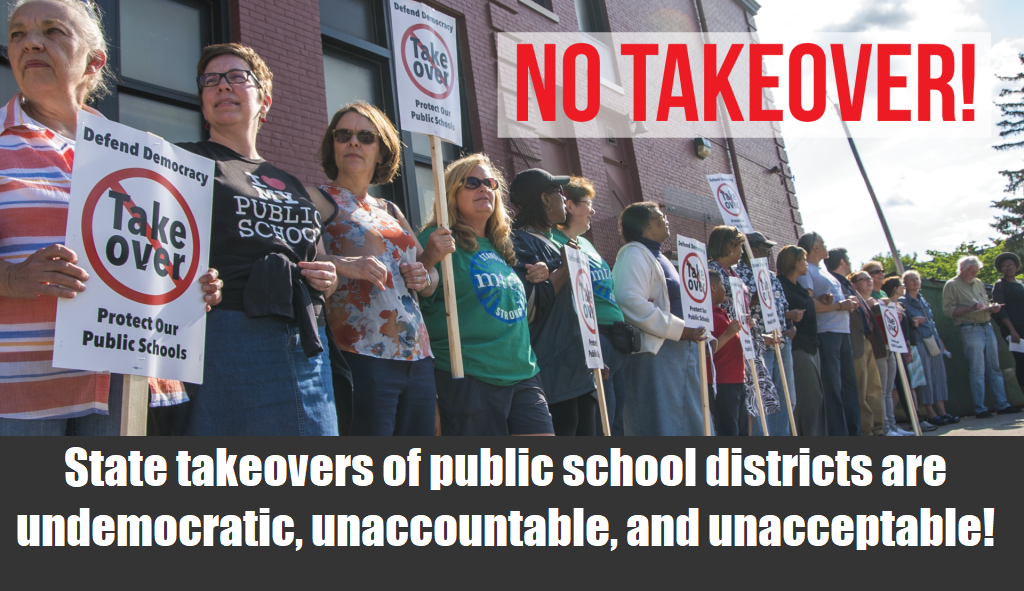
Youngstown’s hundred-year-plus development was halted in 1977 when the Youngstown Sheet and Tube Company closed the Campbell Mill. More than 5,000 jobs were lost immediately, and the loss of 50,000 jobs followed soon after. Most industry is now gone, and the median income in the city is $20,098. The Youngstown School District was the first one taken over by the state under House Bill 70.
School takeovers heavily rely on standardized-test scores to label schools as “failing” and in need of state control – even though federal education laws acknowledge that a broader set of indicators should be used to measure school progress.
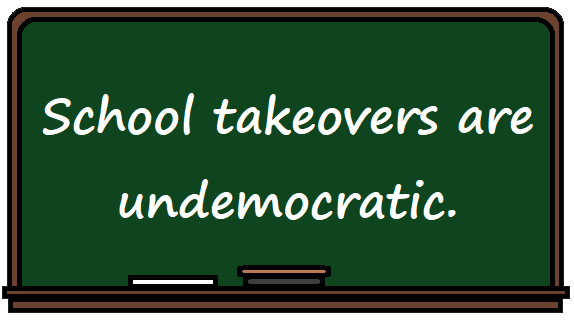

Youngstown’s CEO doesn’t attend the meetings of the elected school board. Board president Brenda Kimble said, “He doesn’t share anything with us and if he can cut us out he will. He doesn’t let the administration talk to us. There’s no communication. We’ve been totally cut out. We’re working as hard as we can to move this bill out of the way because it’s just not right.” She advises other school districts facing takeover, “Please get behind your board. They need your help because they have no power. The people you elected to look over your taxpayer dollars? They have no power. You have more than they do.”
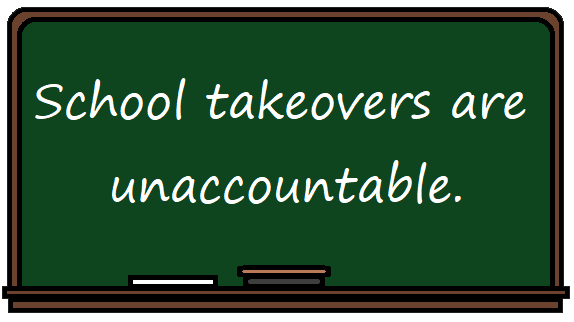
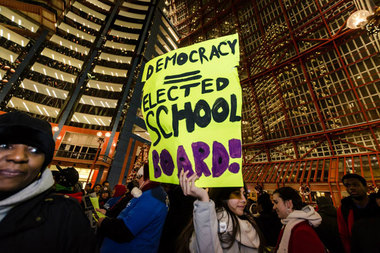
Youngstown Education Association President Larry Ellis said, “In Youngstown, HB 70 has proven to be a bill aimed at destroying public education – not improving it. It has eliminated any type of local control and vested all power in a sole dictatorial CEO. There’s been little to no collaboration with teachers, and they are all but ignored, even though they are the ones in the classroom. Teachers have become the source of blame. They are labeled as broken and needing fixed. Discipline is all but ignored leading to more problems.”
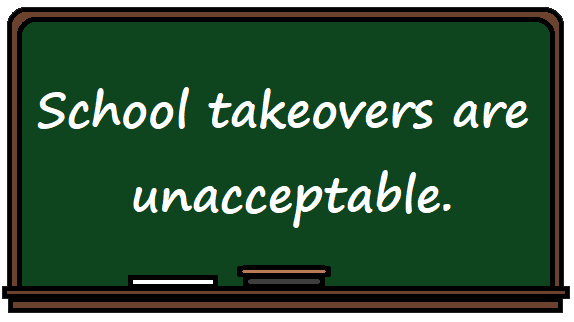
Numbers provided by Youngstown Schools show that 62% of the district’s 5,250 students are black, and about 14.5% are white. In 2018, the Ohio Department of Education’s District Profile Report revealed that 99.98% of Youngstown public school students are disadvantaged, and the city’s median income is $20,098.

Over 20 years ago, the Ohio Supreme Court found that Ohio’s system of relying on property taxes for school funding was unconstitutional. The DeRolph decision was one of many attempts to correct an education funding problem, and it’s still a problem that’s never been solved.
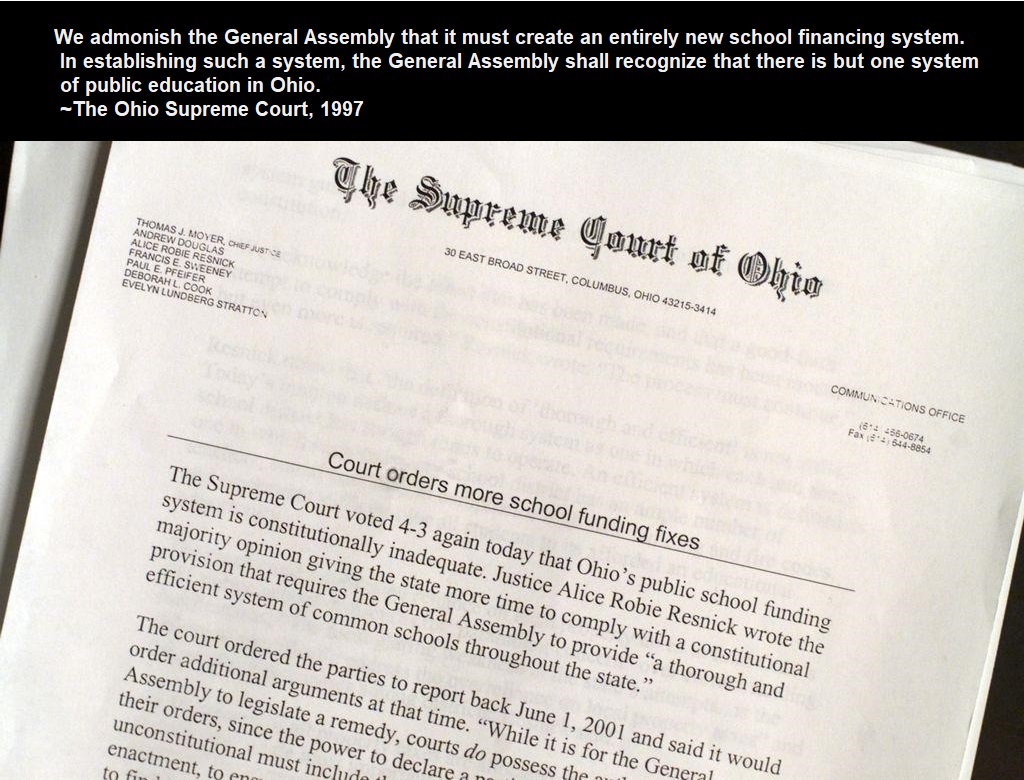
The result of this reliance on test scores in underfunded schools is a disproportionate impact of state-run takeovers on people of color and low-income communities. Nationwide, they are being disenfranchised by school takeovers, which leave them further marginalized.

William Phillis, Executive Director of the Ohio Coalition for Equity and Adequacy of School Funding, says that, “School districts in economically-distressed areas generally have low grades on the state report card; conversely, school districts in affluent areas have high grades. One could travel through a county or region of Ohio and predict the report card grade of the various school districts. Students and school personnel in poverty areas need help from the state to implement wraparound services, not a grade of F.”
Of the 12 school districts under state takeover or soon-to-be taken over, the number of disadvantaged students by school district ranges from 79% to 100%, and the median income of the communities ranges from $20,000-$30,000.
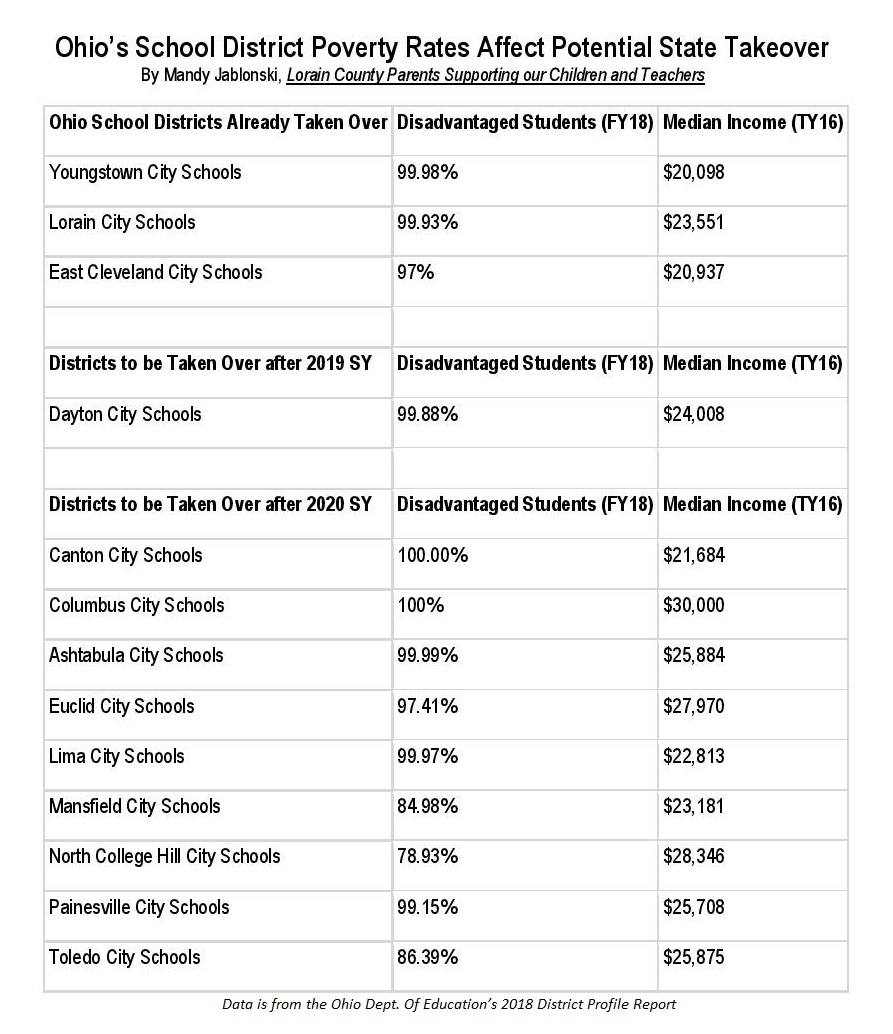
It’s unacceptable that urban districts and most other Ohio school districts have been deprived of the funding and resources required to deliver high-quality education and then have been targeted for takeover by the same state policymakers who set those inadequate funding levels.
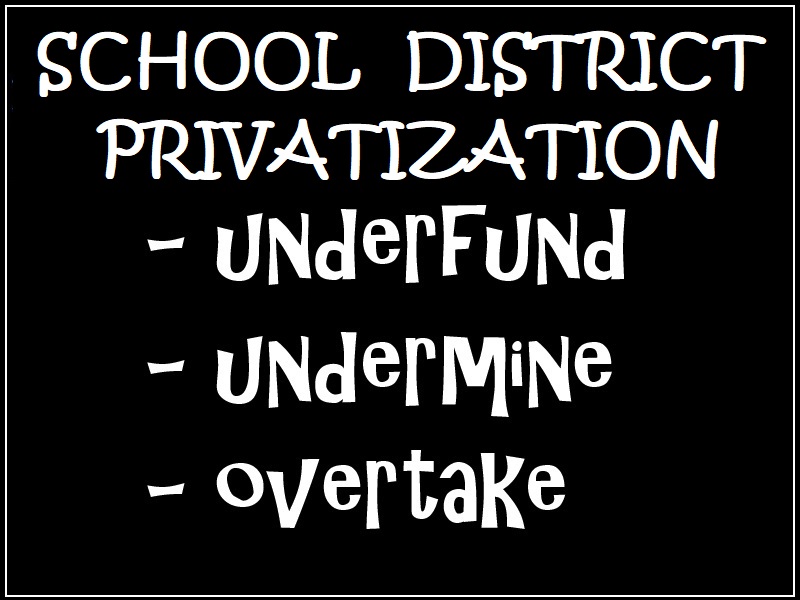
Using resources in the following post, tell your elected leaders that House Bill 70 must either be repealed or drastically revised to return to its original purpose of providing resources to implement wraparound services.

